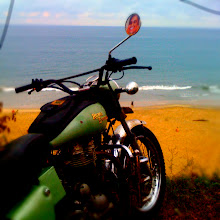port that marks half-way on this journey -- on a boat whose
accommodations are minimalistic: shared (and rather grotty) washrooms,
marginal bedding, rusty flooring, and, um, no-frills eating. An
authentic experience, if not an overly cushy one.
The boat I'm on appears to be a favorite for regular Chinese folks
traversing the river, but it's hardly a sight-seeing cruise. Despite
the 11 a.m. clearly printed on my ticket, we departed at 6 p.m.. It
sails all night long, stops only to allow passengers to board or
disembark, and does not wait for any side-trip excursions. This
explains the great price, I suppose, but feels inexplicable in the
ways that only language barriers can be. Chalk it up to another
adventure in cross-cultural communication (but future travelers be
warned, or at least prepared).
The only other Westerners on the boat, two friendly women from Poland
also on a month-long trip, got off the boat early to continue their
trip over land. It was fun to exchange observations with them in
English.
From all the efforts to communicate with Chinese speakers, I find my
English has become a patois or sorts, using the most basic English
words I can, in grammatical constructions designed to mimic Chinese.
For example, you don't conjugate verbs in Chinese, so to indicate verb
tense, you typically add phrases to indicate when the verb took place.
So, you'd say "I run here a moment ago" instead of "I ran here." For
future tense, the typical construct is to say you want to do
something, instead of saying you will do it. These tricks have proven
helpful with Chinese speakers who know English, but might not have
mastered our comparatively complex verb tenses and their associated
connotations. But I feel like it will take me a few days back home
before I'll be speaking normally again.
This river is amazing. The gorges, even though 127 meters shorter than
they were (the water has already risen that much because of the dam),
are stunning, and go on for 200 km. You get to the point that you
think there can't possibly be another set of misty peaks around the
bend, but turning the corner, sure enough, they stretch to the limits
of your vision.
It is also shockingly dirty. Our boat plows through floating mats of
refuse regularly, and near the dam you could clearly see the traffic
lanes on the water because there was junk floating undisturbed
elsewhere. The garbage appears composed of styrofoam, chunks of lumber
and bamboo, plastic wrappers and shoes! We've driven over hundreds of
shoes. Where are all these barefoot people, who can't take better care
of their footwear when walking along the river?
The Yangtze is also a muddy river, a point driven home when we
approached its confluence with a clear, blue river from the north.
There was a well-defined boundary where the rivers collided, in two
distinct colors, with a demonstration of turbulence at their interface
that Mr. Science could not improve. The mud comes from its origins in
the west. The Yangtze, like the Mississippi, is slowly carrying its
country to the sea.
We've passed many towns and settlements that will be underwater when
the waters reach their full height. They stand mournfully on the
banks, often just below the new developments created for their former
inhabitants. One of these new cities was surrealistically lit like a
disco, with ample neon and colored searchlights roving the sky. It was
trippy. (But even if you like the nightlife and like to boogie, I
would not recommend living in a Yangtze port town: ships ply these
waters at all hours of the day, and blow a skull-rattling horn
whenever they approach the pier to dock. China, in general, has the
volume turned to 11.)
I wish I could see what lurks beneath these waves, the buildings
already submerged, the history now given to the fish and refuse. We
continue onward...


Such a monumental displacement, in so many ways. It just astounds me. At least the inhabitants only had to move to higher ground, assuming the previous inhabitants have the financial ability or the government funding to live in the new digs.
ReplyDeleteDid you, perchance, pass Klaus Kinski in a dinghy at any point?